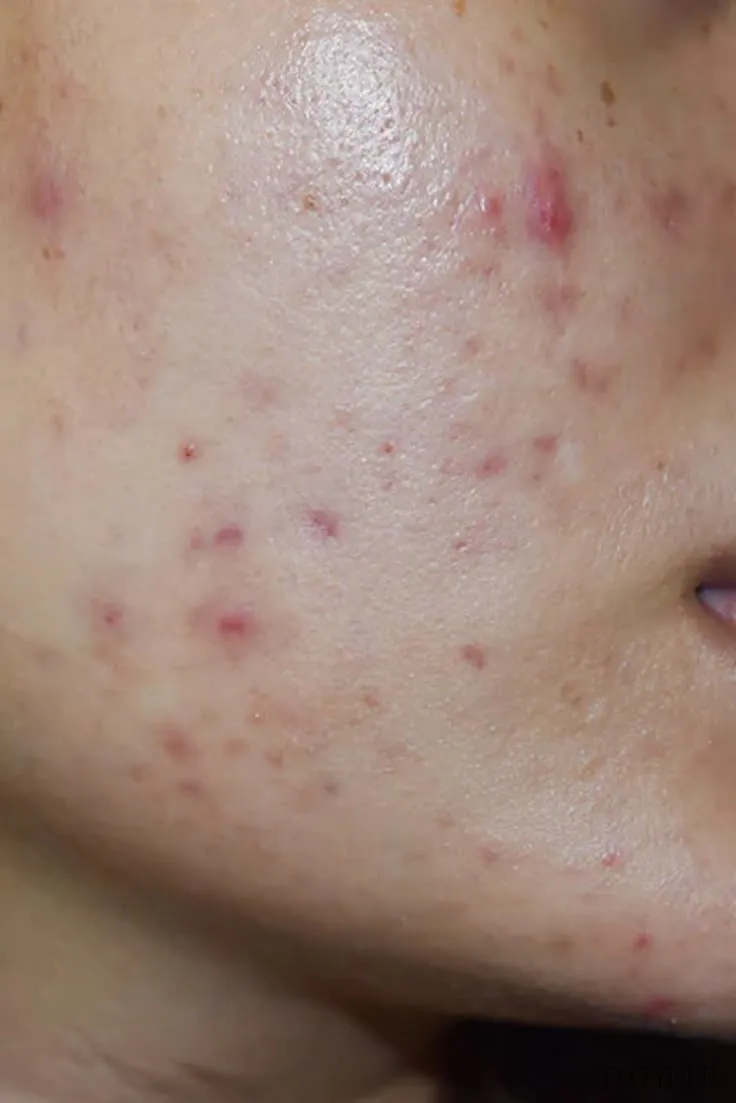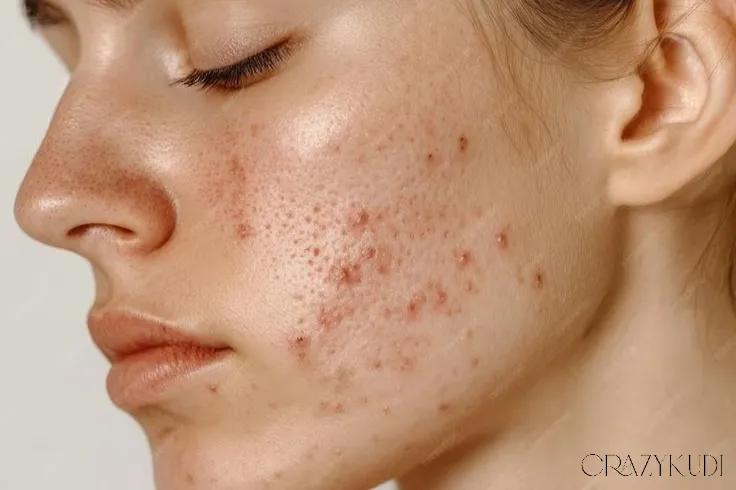Polycystic Ovary Syndrome (PCOS) is a common hormonal disorder that affects millions of women around the world. One of the most frustrating symptoms for many women with PCOS is acne, which can appear on the face, chest, back, and shoulders. If you're dealing with acne due to PCOS, you're not alone. In this post, I’ll explore the connection between PCOS and acne, why this happens, and the most effective treatments available to help manage both conditions.
What is PCOS?
PCOS is a condition that affects how a woman's ovaries function. It is characterized by hormonal imbalances, irregular menstrual cycles, ovarian cysts, and an increased level of androgens (male hormones, like testosterone). These hormonal fluctuations can lead to a variety of symptoms, including weight gain, infertility, excess hair growth (hirsutism), and acne.
While the exact cause of PCOS isn't fully understood, it’s believed to be linked to both genetics and insulin resistance. Insulin resistance can cause the body to produce more insulin, which in turn increases androgen levels and disrupts the balance of hormones in the body. This imbalance, particularly the elevated levels of testosterone, is often responsible for the acne associated with PCOS.
Why Does PCOS Cause Acne?
The connection between PCOS and acne is largely hormonal. The increased levels of androgens in women with PCOS stimulate the sebaceous glands in the skin to produce more oil. This excess oil can clog pores, leading to breakouts and acne.
- Increased Sebum Production: Elevated testosterone levels can lead to hyperseborrhea, or an overproduction of sebum (skin oil), which clogs hair follicles and pores.
- Inflammation: Higher levels of androgens can also cause inflammation, further contributing to acne flare-ups.
- Hormonal Imbalance: PCOS-related hormonal fluctuations can lead to breakouts that are often deeper, more persistent, and more painful than typical acne.
Unlike regular acne, which tends to occur during adolescence and can be temporary, acne caused by PCOS may persist into adulthood, often becoming worse during hormonal shifts like pregnancy or around the time of menstruation.
What Does PCOS Acne Look Like?
Acne caused by PCOS typically appears on the lower part of the face, including the jawline, chin, and neck. These breakouts are often deeper, cystic, and painful. In addition to the typical whiteheads and blackheads, women with PCOS may experience hormonal acne that consists of large, inflamed cysts or nodules under the skin, which can be difficult to treat.
Some women with PCOS also develop acne on their back, chest, and shoulders—areas that are often not affected by typical acne.
How to Treat Acne Caused by PCOS?
Managing acne associated with PCOS involves addressing both the underlying hormonal imbalance and the acne itself. The following treatment options can help women with PCOS manage their skin while also improving overall health.
1. Hormonal Birth Control
One of the most effective treatments for PCOS-related acne is hormonal birth control, which can help regulate hormone levels and reduce the overproduction of androgens. Birth control pills containing estrogen and progestin help to decrease testosterone levels, which in turn reduces excess oil production.
- Brands like Yaz, Yasmin, and Ortho Tri-Cyclen are often prescribed for women with PCOS to manage acne.
- In addition to helping clear up acne, birth control pills can also help with other PCOS symptoms, like irregular periods and excessive hair growth.
2. Anti-Androgen Medications
Spironolactone is a medication that blocks the effects of androgens (male hormones) in the body. By lowering androgen levels, spironolactone helps reduce oil production and improve acne in women with PCOS.
- Spironolactone is commonly prescribed alongside birth control for a more comprehensive approach to managing acne and other symptoms of PCOS, like hirsutism.
- It is important to note that spironolactone is not suitable during pregnancy, so effective birth control should be used when taking this medication.
Also read: Treatments for Nodular Acne: What Are My Options?
3. Topical Treatments for Acne
For women with PCOS who experience acne, topical treatments like retinoids, benzoyl peroxide, and salicylic acid can be effective in treating surface acne and reducing inflammation.
- Topical retinoids (such as tretinoin or adapalene) help unclog pores and prevent the formation of acne. They also promote skin cell turnover, which can reduce the appearance of acne scars.
- Benzoyl peroxide is a powerful antibacterial agent that can help reduce acne-causing bacteria on the skin and calm inflammation.
- Salicylic acid is a mild exfoliant that can help prevent clogged pores and reduce the severity of acne.
These treatments are available in both prescription and over-the-counter formulas.
4. Insulin-Sensitizing Medications
In cases where insulin resistance is a factor in PCOS, metformin (a medication used to treat type 2 diabetes) may help improve insulin sensitivity, lower insulin levels, and reduce the hormonal imbalance that leads to acne.
- Metformin can help regulate periods, promote weight loss, and improve acne in women with PCOS who also experience insulin resistance.

5. Dietary Changes
While diet alone won’t cure PCOS acne, eating a balanced diet can help regulate hormones and improve skin health. Focus on eating anti-inflammatory foods like:
- Leafy greens, whole grains, and healthy fats (like omega-3s) to support hormone balance.
- Avoid high-glycemic foods (such as sugary snacks and refined carbs) and dairy, which have been linked to worsened acne in some people.
Some women find that cutting back on processed foods and sugars helps reduce the severity of their acne. Supplements, like zinc, vitamin D, and omega-3 fatty acids, can also be beneficial for managing both PCOS and acne.
6. Professional Treatments
If topical and oral treatments aren’t sufficient, professional treatments can be a great option:
- Chemical peels using salicylic acid or glycolic acid can help exfoliate the skin, unclog pores, and reduce acne.
- Laser treatments like IPL (Intense Pulsed Light) can help reduce acne, inflammation, and pigmentation caused by PCOS.
These treatments are typically performed by dermatologists and can be combined with at-home care for maximum results.
Also read: What Is Nodular Acne and How Is It Treated?
Living with PCOS and Acne: Skincare Tips
Managing acne caused by PCOS involves a consistent skincare routine. Here are some tips to help keep your skin clear:
- Cleanse gently: Use a gentle, non-comedogenic cleanser to avoid irritating your skin.
- Moisturize: Even if you have oily skin, moisturizing is important to keep your skin healthy and balanced.
- Avoid harsh scrubbing: Exfoliating too aggressively can irritate acne and cause more breakouts.
- Use sunscreen: Some treatments for acne, like retinoids, can make your skin more sensitive to the sun. Always apply sunscreen with at least SPF 30.
Final Thoughts
PCOS-related acne can be frustrating, but there are plenty of treatment options available to help manage both the hormonal imbalance and the acne itself. Working with a healthcare provider and dermatologist to develop a comprehensive treatment plan is the best way to address PCOS acne effectively. By combining hormonal treatments, topical therapies, and lifestyle adjustments, you can regain control of your skin and feel more confident in your appearance.
If you have PCOS and are struggling with acne, don't hesitate to consult with a dermatologist to explore the best treatment options for your unique needs.

